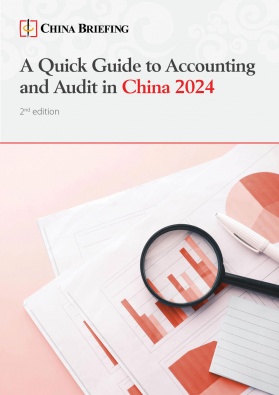China’s Stock Exchanges Announce ESG Reporting Guidelines for Listed Companies
China stock exchanges have announced new sustainability (ESG) reporting guidelines for listed companies, requiring larger-cap and dual-listed issuers to begin mandatory disclosure on a broad range of ESG topics starting in 2026. The guidelines aim at improving the standardization process of ESG reporting among Chinese firms while promoting the high-quality development of listed companies.
On February 8, 2024, China’s three stock exchanges – Shanghai Stock Exchange (SSE), Shenzhen Stock Exchange (SZSE), and Beijing Stock Exchange (BSE) – respectively announced the publication of separate guidelines mandating corporate sustainability disclosure for listed companies (hereinafter “the new Guidelines”).
The new Guidelines require companies to disclose sustainability-related information in reports covering a wide array of topics including carbon and pollutants emissions, circular economy practices, and their contribution to China’s national development strategy, among others.
The new Guidelines reflect the government’s latest effort to improve its corporate reporting landscape while pushing forward the standardization of environmental, social, and governance (ESG) reporting practices among firms in China, as it contributes to national green development goals.
In this article, we note the general requirements in the new Guidelines, including who must comply with these regulations and what type of information needs to be disclosed.
What categories of companies are required to disclose environmental information?
The method of ESG disclosure will vary depending on the stock exchange. For the SSE and SZSE, a combination of mandatory and voluntary disclosures is preferred.
This means that only companies continuously included in the relevant indexes during the reporting period are mandated to disclose their environmental information. These include companies listed in the SSE 180 Index and the Kechuang 50 Index, as well as constituents included in the Shenzhen 100 Index and ChiNext Index.
Additionally, companies listed on domestic and international stock exchanges are also required to make disclosures, while companies that do not belong to these categories are only encouraged to report voluntarily.
In contrast, the BSE primarily targets small and medium-sized enterprises (SMEs). Recognizing their stage of development and limited disclosure capabilities, the BSE has decided to only adopt the principle of “voluntary disclosure.” Capable SMEs are currently encouraged to voluntarily submit reports, serving as benchmark cases for sustainable development practices.
Submission of mandatory ESG reports
Companies that are mandatorily required to disclose environmental information must prepare the sustainability report, in accordance with the new Guidelines, within four months after each fiscal year ends. This report is to be disclosed concurrently with the annual report, following review and approval by the board of directors.
In terms of the timing of these disclosures, the new Guidelines provide more flexibility for mainland China’s listed companies so as to give them the time to fully prepare and correctly comply with the new regulations. Those subject to compulsory reporting are not expected to release their sustainable development report for the calendar year 2025 until April 30, 2026.
This shows a more relaxed regulatory system compared to the one implemented by the Hong Kong Exchanges and Clearing (HKEX) last April. The latter required all companies to provide climate-related information in their ESG reports starting from January 1,, 2024. The implementation was then postponed by one year, due to the issuers’ lack of preparedness to comply with the new regulations.
What information are companies required to disclose?
Reporting framework
The new Guidelines, issued by China’s three main stock markets, require listed companies to comprehensively disclose and analyze their sustainability-related information around four new core aspects:
- Governance: Company’s governance structure and internal system for managing and monitoring impact, risks, and opportunities related to sustainable development;
- Strategy: The company’s tactics and approaches to address impacts, risks, and opportunities related to sustainable development;
- Risk management: Measures and procedures used by companies to identify, assess, monitor, and manage sustainability-related impacts, risks, and opportunities; and
- Metrics and targets: Indicators and targets used by the companies to measure, manage, monitor, and evaluate their response to impacts, risks, and opportunities related to sustainable development.
The new reporting framework seeks to address both the risks and impacts of sustainability issues on a company, and its influence on the environment and society.
According to what is stated in the new Guidelines, the decision to adopt this framework is driven by the objective of enhancing transparency and clarity in companies’ reporting, thereby helping investors and key stakeholders gain a comprehensive understanding of companies’ actions and operations undertaken to drive their sustainable development.
Required information to be disclosed
In addition to fundamental company details like sector, development stage, and business model, all three stock markets have introduced a wide array of topics for disclosure. These range from carbon emissions and pollutants to rural revitalization and supply chain aspects related to ESG considerations.
Data disclosures that must be contained in the reports are:
- Assessment of climate change’s impact on company’s strategy along with short, medium, and long-term adaptation strategies;
- Total greenhouse emissions, including the volume of emissions of Scope 1 and Scope 2, emission-reduction measures adopted, and opportunities related to carbon neutrality;
- Pollution prevention and ecosystem protection, including implemented environmental management systems, impact, and measures to protect biodiversity, waste emission information, and environmental emergency response mechanism;
- Specifics of circular economy, including objectives and plans, progress made in waste recovery and comprehensive utilization, along with information related to energy and water consumption and conservation goals; and
- Environmental violations and administrative penalties or criminal liabilities imposed by relevant authorities.
Companies are also required to assess their contribution to supporting China’s national development strategies. Specifics need to be disclosed regarding:
- Support to rural revitalization;
- Contribution to public welfare;
- Promotion of scientific and technological innovation; and
- Companies’ anti-corruption, anti-bribery, and anti-unfair competition progress in the corporate governance information disclosure category.
The new Guidelines have been specifically tailored to facilitate companies’ environmental information disclosure, particularly in areas where companies may have limited experience. Notably, companies are only encouraged, but not obliged, to report on emissions from upstream to downstream industrial chains or from associates and joint ventures, known as Scope 3 emissions, and to conduct scenario analysis.
This lenient approach has been preferred as it is believed to be a good starting point to promote a shift toward transparency in the long run. In fact, it aims at encouraging a larger number of companies to start embarking on environmental information disclosure, and then gradually expand the scope of information required over time.
Impact of the new ESG Guidelines on companies in China
As global consensus solidifies around ESG and impetus for decarbonization, enterprises worldwide are facing heightened expectations and regulatory scrutiny regarding the sustainability of their practices.
The new Guidelines represent China’s persistent commitment to enhancing sustainability within its firms by addressing climate change and environmental concerns. With mandatory reporting introduced for select listed companies, more Chinese enterprises will be compelled to prioritize their sustainability initiatives.
Improving ESG performance and the correct disclosure of environmental information holds multifaced benefits for Chinese firms. For instance, companies will increase their profitability by implementing cost-reduction measures like waste management. Furthermore, the push for sustainable development will also contribute to their appeal among environmentally conscious foreign investors, customers, and financial institutions.
Increasingly, investors are demanding that companies factor climate and sustainability risks into their decision-making process. The enhanced transparency via ESG reporting will ultimately boost of global investor confidence in the operation and strategies of these firms.
According to the SSE, voluntary ESG reporting within its listed companies were pursued by a little under half of all companies listed on the bourse in 2023. This indicates that despite an evident recognition of the importance of ESG, the journey towards comprehensive ESG reporting is ongoing.
While mandatory reporting obligations are currently applicable to fewer than 500 companies in mainland China, the new sustainability reporting guidelines signify a tangible effort to enhance and standardize reporting requirements. A gradual expansion in coverage can be expected as more companies bolster their ESG reporting capabilities in the years ahead.
About Us
China Briefing is one of five regional Asia Briefing publications, supported by Dezan Shira & Associates. For a complimentary subscription to China Briefing’s content products, please click here.
Dezan Shira & Associates assists foreign investors into China and has done so since 1992 through offices in Beijing, Tianjin, Dalian, Qingdao, Shanghai, Hangzhou, Ningbo, Suzhou, Guangzhou, Haikou, Zhongshan, Shenzhen, and Hong Kong. We also have offices in Vietnam, Indonesia, Singapore, United States, Germany, Italy, India, and Dubai (UAE) and partner firms assisting foreign investors in The Philippines, Malaysia, Thailand, Bangladesh, and Australia. For assistance in China, please contact the firm at china@dezshira.com or visit our website at www.dezshira.com.
- Previous Article China’s Foreign Minister Wang Yi to Visit Australia for Trade and Technology Talks
- Next Article Hong Kong’s Cosmetics and Skincare Market – Trends and Industry Overview


























